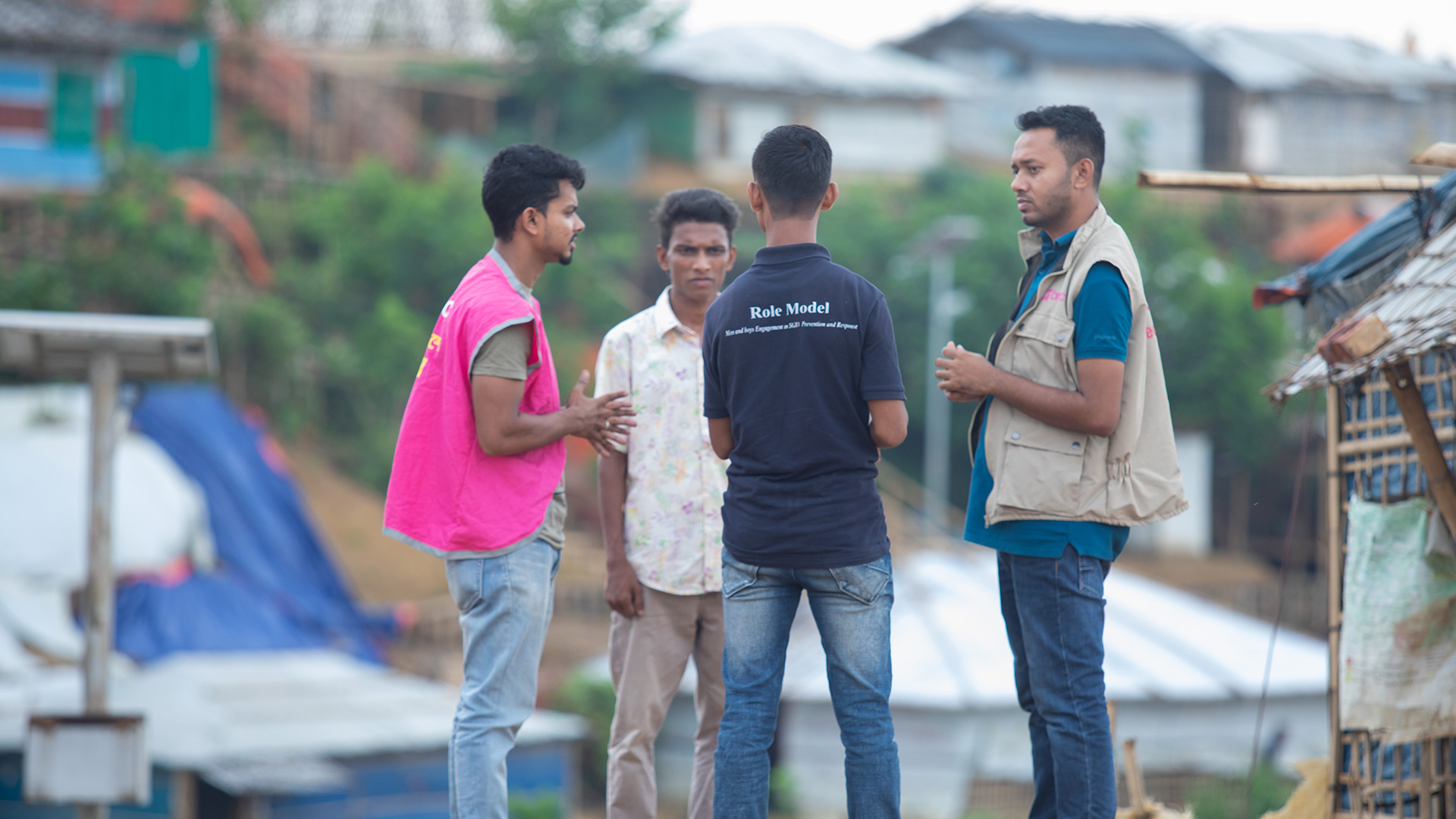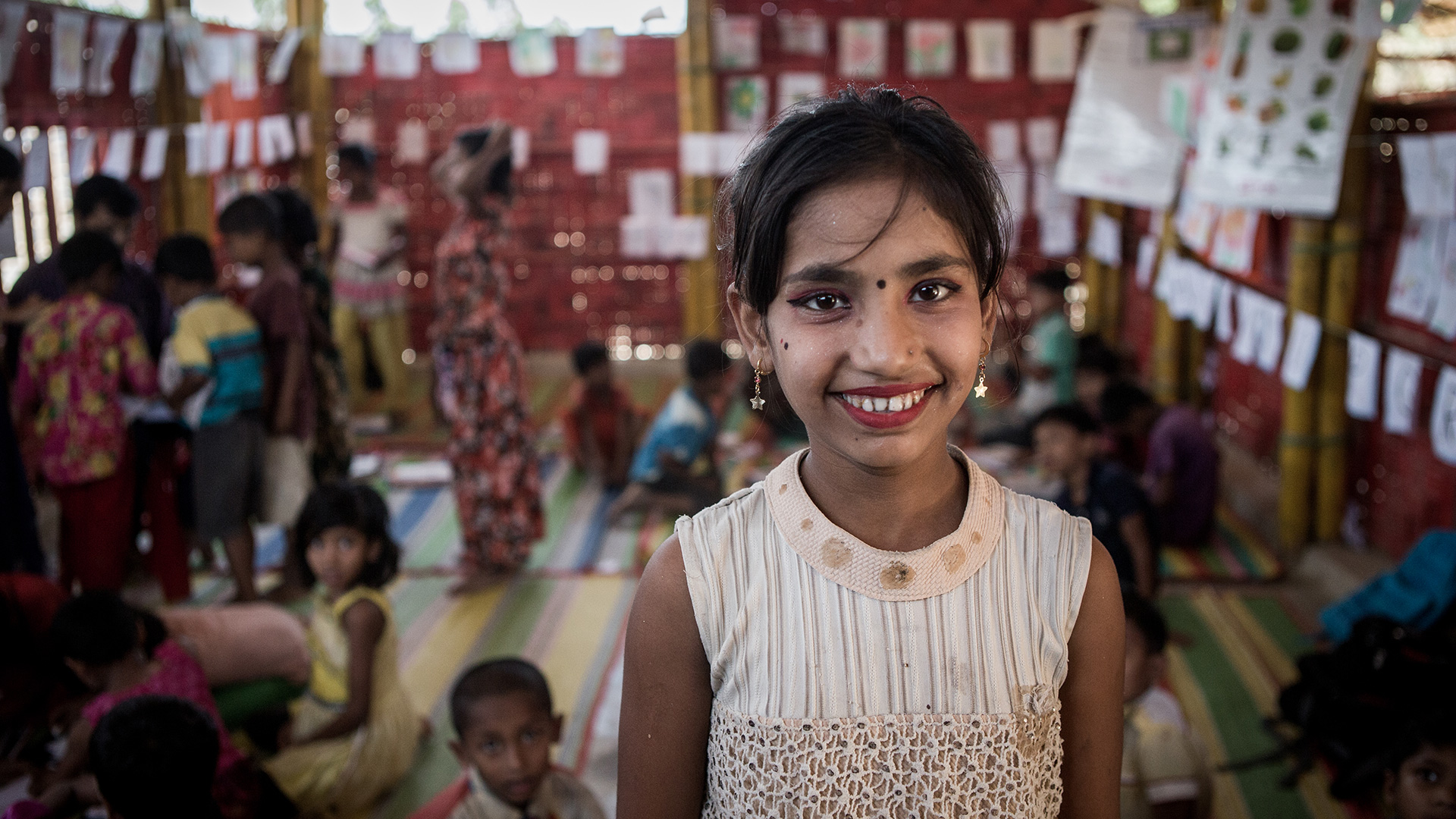HUMANITARIAN PROGRAMME
Bangladesh is the 8th worst-affected country in the world in terms of natural disasters. 3.5 million people are currently in need of humanitarian assistance.
We bridge short-term humanitarian and long-term development approaches to promote disaster resilience and sustainable development, and address the needs of the most vulnerable communities. Our work is aligned with the Sustainable Development Goals and the Sendai Framework for Disaster Risk Reduction. Our trained frontline crisis responder teams across the country are well-established and ready to support communities in disasters.
157,600 people received early warnings on flooding, riverbank erosion, cyclones, and heatwaves
21,914 households reached with holistic humanitarian response
2,158 women managed community-based disaster funds to restore immediate losses
1,000 marginal farmers in haor (wetland) areas trained on hydroponic farming
140 survivors of the Rana Plaza building collapse received medical services
HUMANITARIAN CRISIS MANAGEMENT PROGRAMME
904,706 Rohingya living in camps and 6,653 people in host communities in Cox’s Bazar need humanitarian support.
We adopt a multi-sectoral approach to provide critical services to people affected by the crisis, through integrated interventions such as health, nutrition, shelter, WASH, protection, education, livelihoods, disaster risk reduction, agriculture, shelter, environment, and food security. Our experience and capacity in humanitarian response allow us to design holistically and implement at scale. Our strategy is adaptive and phase-wise, sequencing interventions to maximise responsiveness and impact, with an aim to provide integrated services to both Rohingya and host communities.
36,148 shelters built to improve living conditions
19,304 latrines constructed to ensure access to hygienic facilities
11,180,195 consultations made through community health outlets
132,868 psychosocial support sessions provided in facilities
50,606 children registered in child-friendly spaces
50,940 children registered in temporary learning centres
CLIMATE CHANGE PROGRAMME
Bangladesh is one of the most vulnerable countries to adverse climate change impacts, suffering economic losses of over USD 12 billion over the past 40 years.
Our integrated approach addresses climate change impacts, using adaptation measures, through BRAC’s development initiatives. Our work protects resources, improves quality of life, and builds awareness about the environment in rural and urban communities. We provide people with access to the tools and knowledge to adapt and respond to adverse climatic impacts and adopt sustainable practices to combat impending climatic impacts.
823,342 people living in 41 vulnerable districts received support to cope with climate change impacts
335,990 households reached through integrated climate-resilient solutions

ROHINGYA MEN LEAD THE FIGHT AGAINST GENDER VIOLENCE IN THEIR COMMUNITIES
Maulana Ayub, 33, has just wrapped up leading the prayers at a mosque in one of the camps for Rohingya communities in Cox’s Bazar. Before his congregation leaves, he takes the time to talk about some important issues. This week he covers sexual and genderbased violence.
Ayub is one of 105 Rohingya males engaged in educating other men on sexual and gender-based violence, talking about issues such as dowry, positive masculinity, child marriage and polygamy.
The programme is led by Jahidur Rahman, a men and boys engagement manager at BRAC. “I noticed a dearth of initiatives regarding these matters that actually included men. I felt their participation was essential,” he says.
The programme began engaging men in discussions on sexual and gender-based violence. “In most cases, men were either witnesses or perpetrators of violence. We felt it would be best if they led the changes,” Jahidur says.
The facilitators went to tea stalls in the camps to begin the discussions. The men and boys who responded positively were selected to be part of the programme.
For three months, the selected individuals went through a “Journey of Transformation”, where they experienced change on an individual level. After the training, they were tasked with facilitating discussions.
Jahidur said they had to first find out what tools would be best for packaging messages. “We observed that if our messages used religious logic, they would be more quickly accepted,” he said.
They also had to decide which approach to use. “We opted for a community-based model. We have set up four centres and those are taken care of by community members voluntarily,” Jahidur says.
Jahidur implemented the bystander to role model approach, primarily used for gender violence prevention and focusing on young men not as perpetrators or potential perpetrators, but as empowered bystanders who can confront abusive peers and support abused ones. “I had seen that the bystander to role model working globally, so I tried it out here,” Jahidur says.
The 105 boys and men selected in the UNHCR-funded programme are now classified as role models.
Is the approach working? Maulana Ayub, one of the role models, believes so. “I have witnessed first-hand how child marriage has decreased in the camps, along with domestic violence. The men are also shying away from dowry,” he says.

